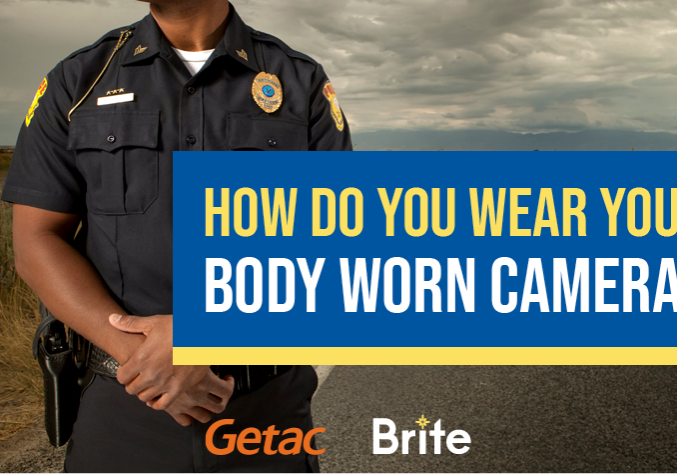How Do You Wear Your Body Worn Camera?
April 27, 2017
So, your Police Department has made the decision to purchase and implement a body worn camera program; but where do you wear them? This is a key piece of information that absolutely needs to be determined prior to deploying the cameras into the field.
Police Executive Research Forum (PERF) recommends that police department policies specify the location on the body on which cameras should be worn. The most appropriate camera placement will depend upon requirements set forth by each police department (i.e. what do you need the camera to do? Or what type of digital evidence are you capturing?). Other factors include field of vision, comfort, functionality, and ease of use.
According to current body worn users:
- The most common placement is on the officer’s chest
- Wearing head/sunglasses is also a popular location because the BWC looks in the direction the officer sees. Something to consider, however, is an officer can easily lose his glasses in a scuffle and you cannot always wear sunglasses. Some officers have also expressed concern about the potential of injury when wearing a camera so close to the eye area.
- Shoulder/collar placement may provide a good perspective, but the camera can too easily be blocked when officers raise their arms. An agency lost valuable footage of an active shooter incident because the officer’s firearm knocked the camera from his shoulder.
- Some agencies specify that officers should wear cameras on the gun/shooting side of the body, which they believe offers a clearer view of events during shooting incidents.
- Officer height can also factor in as the field of view will vary and placement for one officer, may not work for another of a different stature.
Our recommendation is to field test multiple brackets and mounts in different positions with several different officers to understand the best placement. The ideal location would optimize the field of view with limited obstructions, be comfortable for every officer, universal between officers and will not hinder officer range of motion or fall off in any situation.
Interested in body worn technology? We can help!

